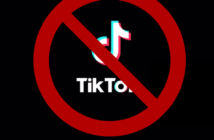By: Daniela Mercades, Contributing Writer
In the 2020 election, Florida voters approved a ballot initiative to gradually increase the state’s minimum wage to $15 per hour. Florida is the first state in the South to raise its’ minimum wage to $12 or more per hour, and it will be the eighth nationwide. Considering that the federal minimum wage is currently $7.25, and $8.56 in Florida, the increase will bring significant changes. The wage increase will occur gradually over a period of 6 years.
In September 2021, Florida’s new minimum wage will stand at $10 per hour. It will increase by $1 every year until 2026. For workers, this increase is a positive event. However, business owners may need to modify aspects of their operations to be able to pay their employees almost twice the amount they did before. If the wage increase were to jump to $15 per hour at once, employers would be in a rush to prevent financial losses. This would, in turn, cause panic in the labor market and an unstable economy.

President-elect Joe Biden supports a $15 minimum wage nationwide, while former President Donald Trump believes the amount should be decided by the individual states. To approve the wage increase in Florida, Floridians needed a 60% or more vote on the minimum wage ballot initiative. Amendment 2, increasing the minimum wage, was passed with a 60.8% vote.
According to Zachary Smith, a professor of economics at Saint Leo University, the act of intervening in a market that has reached an equilibrium and instituting a price floor above the equilibrium price will cause an imbalance between the quantity of the goods or service demanded on the market and the quantity of the goods and services that the market supplies. As a result, the country will likely have too many workers ready to work and too few businesses willing to hire them at the increased wage.
Smith, who holds a doctorate in economics, disagrees with the minimum wage increase. He thinks that the government is destroying entry-level jobs, which help workers gain experience in their career ladders. According to Smith, they should allow market forces (the actions of buyers and sellers that cause the prices of goods and services to change without being controlled by the government) to determine the equilibrium wage rate and should not intervene in markets to attempt to fix issues related to economic inequality. There are other tools to achieve that purpose. Even though the minimum wage increase will take place over several years, it is likely to affect national debt levels in the long-term, according to Professor Smith.

According to the Congressional Budget Office, an increase in the minimum wage to $15 in any state by 2025 would increase the income of 17 million inhabitants. Such an increase could potentially result in 1.3 million lost jobs. Part-time workers and adults without a high school diploma would be the most negatively affected by this change.
Students at Saint Leo have strong opinions on this topic since the changes affect them. Wilnor Simon, a sophomore student majoring in business management, disagrees with the implementation of a $15 minimum wage. He sees how the increase may positively affect his income; however, he thinks it will not benefit the country as a whole. With the extra money earned, Simon plans to become more involved in investing in the future. Annabella Serrano, a Saint Leo marketing major, and an economics major, Nicholas Balfe, also disagree with the increase in Florida’s minimum wage. They explained that the outcome of the wage increase will be raised taxes and lost jobs.
Myron Kowalski, a professor who teaches McDonaldization at Saint Leo University, explains to his students how raising the minimum wage to $15 an hour will force medium and large businesses to use technology instead of workers. This may mean that robots have the potential to replace humans.
Economists are now analyzing whether the wage increase will cause inflation. A hypothesis that could explain this situation is called a wage push. It is an increase in the price of goods as a result of an increase in wages. Business owners may have to increase their prices to afford to pay the employees’ wages. According to the economist Ed Rensi, former president and CEO of McDonald’s, between 15% to 20% of small businesses, for example coffee shops, will have to close.
Over 336,000 Floridians have lost jobs as a result of COVID-19. An increase in minimum wage can lead to another 158,000 jobs disappearing.





